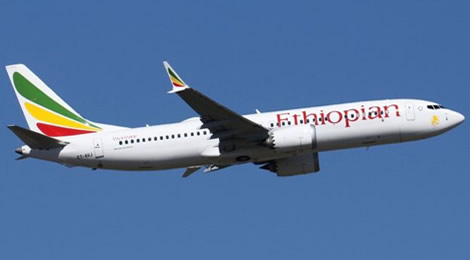China orders airlines to ground all Boeing 737 Max 8 aircraft

Responding to the second crash of a Boeing 737 Max 8 soon after takeoff in less than five months, China ordered its airlines on Monday morning to ground all 96 of the aircraft that they operate.
The Civil Aviation Administration of China noted in its announcement of the grounding that both the Ethiopian Airlines crash on Sunday and a Lion Air crash in Indonesia in late October had involved very recently delivered Boeing 737 Max 8 aircraft that crashed soon after takeoff.
The Chinese aviation regulator said in its announcement that it had notified Chinese air carriers at 9 a.m. that they had nine hours to take the planes out of service. But the state-owned Assets Supervision and Administration Commission, a government agency that oversees the Chinese government’s large stakes in airlines and many other industries, announced on Weibo, a social media site, just an hour later that all of the carriers’ 96 Boeing 737 Max 8s had already been grounded, although the posting was later deleted.
Flight tracking websites showed that Chinese airlines were substituting Boeing 737-800s on Monday morning on routes where they had previously operated a Boeing 737 Max 8.
China’s main airlines are among the biggest users so far of the new Boeing jets, having taken delivery of most of the planes they have ordered so far. By contrast, many other carriers, often in slower-growing markets than China’s, have taken delivery of only a small fraction of their orders for the Boeing 737 Max 8.
Separately, Boeing said it was postponing the external debut of its 777X plane, which had been planned for Wednesday. The company took the action in a statement in which it said it was “deeply saddened” by the Ethiopian Airlines Flight 302 accident.
On a commercial level, China’s aviation sector could actually benefit from the tragedies in Indonesia and Ethiopia. A government-owned company in Shanghai has begun doing flight tests of a Chinese-made alternative to the Boeing 737, called the Comac C919. The C919 is the cornerstone of China’s effort to build a commercial aviation competitor to Boeing and Airbus.
The C919 has already attracted hundreds of orders from air carriers in China’s state-controlled airline industry, and it is scheduled to deliver the plane starting in 2021. But China has struggled to find overseas buyers beyond securing a handful of orders from tiny airlines in impoverished countries that are heavily dependent on Chinese aid.
The C919 still faces big hurdles before it could prove to be a viable competitor. Airlines worry that it won’t be as fuel efficient as rival planes from Boeing and Airbus. Fuel is one of the main costs in operating a passenger airline, and even more important for international cargo airlines like FedEx, which have evinced little immediate interest in buying the C919. Big buyers would likely wait to see how the planes perform in China before making a commitment.
Another issue lies in how open about safety issues China will be. The country’s safety regulator and the manufacturer, the state-owned Commercial Aircraft Corporation of China, have worked closely with foreign experts so far on safety.
An embarrassing crash could test how willing the company and regulators in Beijing would be to share information. When a high-speed train crashed in southeastern China in July, 2011, the authorities quickly bulldozed the wreckage into pits and covered it over before investigators could even start trying to figure out what went wrong.
The Chinese government also issued an order to domestic media not to cover the crash and not to do investigations into what went wrong.
Airlines might switch instead to the better-known Airbus alternative, the A320neo.
Source: The New York Times





